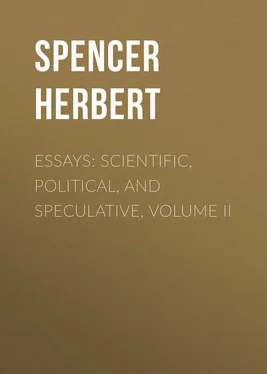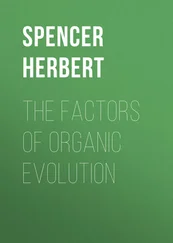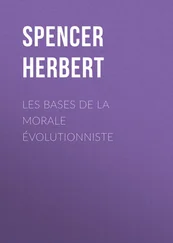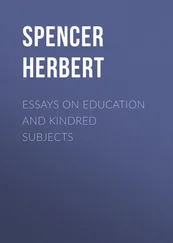Herbert Spencer - Essays - Scientific, Political, and Speculative, Volume II
Здесь есть возможность читать онлайн «Herbert Spencer - Essays - Scientific, Political, and Speculative, Volume II» — ознакомительный отрывок электронной книги совершенно бесплатно, а после прочтения отрывка купить полную версию. В некоторых случаях можно слушать аудио, скачать через торрент в формате fb2 и присутствует краткое содержание. Жанр: Философия, foreign_antique, foreign_prose, sketch, на английском языке. Описание произведения, (предисловие) а так же отзывы посетителей доступны на портале библиотеки ЛибКат.
- Название:Essays: Scientific, Political, and Speculative, Volume II
- Автор:
- Жанр:
- Год:неизвестен
- ISBN:нет данных
- Рейтинг книги:5 / 5. Голосов: 1
-
Избранное:Добавить в избранное
- Отзывы:
-
Ваша оценка:
- 100
- 1
- 2
- 3
- 4
- 5
Essays: Scientific, Political, and Speculative, Volume II: краткое содержание, описание и аннотация
Предлагаем к чтению аннотацию, описание, краткое содержание или предисловие (зависит от того, что написал сам автор книги «Essays: Scientific, Political, and Speculative, Volume II»). Если вы не нашли необходимую информацию о книге — напишите в комментариях, мы постараемся отыскать её.
Essays: Scientific, Political, and Speculative, Volume II — читать онлайн ознакомительный отрывок
Ниже представлен текст книги, разбитый по страницам. Система сохранения места последней прочитанной страницы, позволяет с удобством читать онлайн бесплатно книгу «Essays: Scientific, Political, and Speculative, Volume II», без необходимости каждый раз заново искать на чём Вы остановились. Поставьте закладку, и сможете в любой момент перейти на страницу, на которой закончили чтение.
Интервал:
Закладка:
There are à priori reasons, therefore, for doubting the truth of all philosophies of the sciences which tacitly proceed upon the common notion that scientific knowledge and ordinary knowledge are separate; instead of commencing, as they should, by affiliating the one upon the other, and showing how it gradually came to be distinguishable from the other. We may expect to find their generalizations essentially artificial; and we shall not be deceived. Some illustrations of this may here be fitly introduced, by way of preliminary to a brief sketch of the genesis of science from the point of view indicated. And we cannot more readily find such illustrations than by glancing at a few of the various classifications of the sciences that have from time to time been proposed. To consider all of them would take too much space: we must content ourselves with some of the latest.
Commencing with those which may be soonest disposed of, let us notice, first, the arrangement propounded by Oken. An abstract of it runs thus: —
Part I. MATHESIS. — Pneumatogeny : Primary Act, Primary Consciousness, God, Primary Rest, Time, Polarity, Motion, Man, Space, Point, Line, Surface, Globe, Rotation. — Hylogeny : Gravity, Matter, Ether, Heavenly Bodies, Light, Heat, Fire.
(He explains that MATHESIS is the doctrine of the whole; Pneumatogeny being the doctrine of immaterial totalities, and Hylogeny that of material totalities.)
Part II. ONTOLOGY. — Cosmogeny : Rest, Centre, Motion, Line, Planets, Form, Planetary System, Comets. — Stöchiogeny : Condensation, Simple Matter, Elements, Air, Water, Earth. — Stöchiology : Functions of the Elements, &c. &c. — Kingdoms of Nature : Individuals.
(He says in explanation that ‘ONTOLOGY teaches us the phenomena of matter. The first of these are the heavenly bodies comprehended by Cosmogeny . These divide into elements. — Stöchiogeny. The earth element divides into minerals — Mineralogy . These unite into one collective body — Geogeny . The whole in singulars is the living, or Organic , which again divides into plants and animals. Biology , therefore, divides into Organogeny , Phytosophy , Zoosophy .’)
FIRST KINGDOM. – MINERALS. Mineralogy , Geology .
Part III. BIOLOGY. — Organosophy , Phytogeny , Phyto-physiology , Phytology , Zoogeny , Physiology , Zoology , Psychology .
A glance over this confused scheme shows that it is an attempt to classify knowledge, not after the order in which it has been, or may be, built up in the human consciousness; but after an assumed order of creation. It is a pseudo-scientific cosmogony, akin to those which men have enunciated from the earliest times downwards; and only a little more respectable. As such it will not be thought worthy of much consideration by those who, like ourselves, hold that experience is the sole origin of knowledge. Otherwise, it might have been needful to dwell on the incongruities of the arrangement – to ask how motion can be treated of before space? how there can be rotation without matter to rotate? how polarity can be dealt with without involving points and lines? But it will serve our present purpose just to indicate a few of the absurdities resulting from the doctrine which Oken seems to hold in common with Hegel, that “to philosophize on Nature is to re-think the great thought of Creation.” Here is a sample: —
“Mathematics is the universal science; so also is Physio-philosophy, although it is only a part, or rather but a condition of the universe; both are one, or mutually congruent.
“Mathematics is, however, a science of mere forms without substance. Physio-philosophy is, therefore, mathematics endowed with substance .”
From the English point of view it is sufficiently amusing to find such a dogma not only gravely stated, but stated as an unquestionable truth. Here we see the experiences of quantitative relations which men have gathered from surrounding bodies and generalized (experiences which had been scarcely at all generalized at the beginning of the historic period) – we find these generalized experiences, these intellectual abstractions, elevated into concrete actualities, projected back into Nature, and considered as the internal frame-work of things – the skeleton by which matter is sustained. But this new form of the old realism, is by no means the most startling of the physio-philosophic principles. We presently read that,
“The highest mathematical idea, or the fundamental principle of all mathematics is the zero = 0.” * * *
“Zero is in itself nothing. Mathematics is based upon nothing, and, consequently , arises out of nothing.
“Out of nothing, therefore , it is possible for something to arise; for mathematics, consisting of propositions, is a something in relation to 0.”
By such “consequentlys” and “therefores” it is, that men philosophize when they “re-think the great thought of creation.” By dogmas that pretend to be reasons, nothing is made to generate mathematics; and by clothing mathematics with matter, we have the universe! If now we deny, as we do deny, that the highest mathematical idea is the zero – if, on the other hand, we assert, as we do assert, that the fundamental idea underlying all mathematics, is that of equality; the whole of Oken’s cosmogony disappears. And here, indeed, we may see illustrated, the distinctive peculiarity of the German method of procedure in these matters – the bastard à priori method, as it may be termed. The legitimate à priori method sets out with propositions of which the negation is inconceivable; the à priori method as illegitimately applied, sets out either with propositions of which the negation is not inconceivable, or with propositions like Oken’s, of which the affirmation is inconceivable.
It is needless to proceed further with the analysis; else might we detail the steps by which Oken arrives at the conclusions that “the planets are coagulated colours, for they are coagulated light”; that “the sphere is the expanded nothing;” that gravity is “a weighty nothing, a heavy essence, striving towards a centre;” that “the earth is the identical, water the indifferent, air the different; or the first the centre, the second the radius, the last the periphery of the general globe or of fire.” To comment on them would be nearly as absurd as are the propositions themselves. Let us pass on to another of the German systems of knowledge – that of Hegel.
The simple fact that Hegel puts Jacob Bœhme on a par with Bacon, suffices alone to show that his stand-point is far remote from the one usually regarded as scientific: so far remote, indeed, that it is not easy to find any common basis on which to found a criticism. Those who hold that the mind is moulded into conformity with surrounding things by the agency of surrounding things, are necessarily at a loss how to deal with those who, like Schelling and Hegel, assert that surrounding things are solidified mind – that Nature is “petrified intelligence.” However, let us briefly glance at Hegel’s classification. He divides philosophy into three parts: —
1. Logic , or the science of the idea in itself, the pure idea.
2. The Philosophy of Nature , or the science of the idea considered under its other form – of the idea as Nature.
3. The Philosophy of the Mind , or the science of the idea in its return to itself.
Of these, the second is divided into the natural sciences, commonly so-called; so that in its more detailed form the series runs thus: – Logic, Mechanics, Physics, Organic Physics, Psychology.
Читать дальшеИнтервал:
Закладка:
Похожие книги на «Essays: Scientific, Political, and Speculative, Volume II»
Представляем Вашему вниманию похожие книги на «Essays: Scientific, Political, and Speculative, Volume II» списком для выбора. Мы отобрали схожую по названию и смыслу литературу в надежде предоставить читателям больше вариантов отыскать новые, интересные, ещё непрочитанные произведения.
Обсуждение, отзывы о книге «Essays: Scientific, Political, and Speculative, Volume II» и просто собственные мнения читателей. Оставьте ваши комментарии, напишите, что Вы думаете о произведении, его смысле или главных героях. Укажите что конкретно понравилось, а что нет, и почему Вы так считаете.












